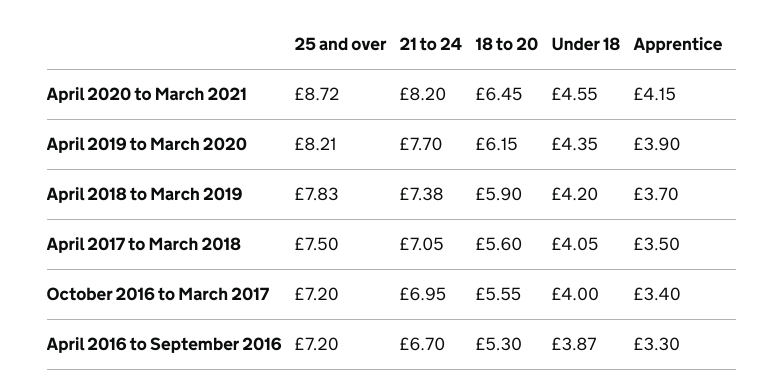Learning how to employ staff for the first time is one of the most important decisions to be made as an employer. If you’re looking to grow your business or manage your workload, employing new members of staff can significantly improve your business to grow faster. However, the process can be overwhelming to handle in terms of legal rights, costs, and business requirements. This article will break down the process step by step and offer tips on how to employ your first staff member. The key 7 guidelines below are important steps to check when recruiting new staff members.
1) Hiring employee for the first time
2) Right to work checks
3) Employment Checks
4) Employment Insurance
5) Employment Contract
6) Registering as an employer
7) Workplace Pension Scheme
1) Hiring employee for the first time
When hiring an employee, the first thing you decide is whether you’re recruiting full time or part time staff, and the cost of employment. There are various contracts to consider ranging from:
- Full time and part time
- Zero-hours contract
- Agency
- Fixed-term
It’s important to note that by law all employees are required to be paid National Minimum Wage (NMW). The wage depends on their age – however, the wage is varies depending on other factors as well.
The new NMW is going to be changed starting April 2022, so it’s important to check this year on year for any changes.
Previews rate

How to recruit for small business?
The process is essentially very similar to any other business out there. First step would be checking if you can afford to take on employees, and how much to pay them. If they are sick – how much they would be eligible for, including their pension, maternity and paternity leave.
2) Right to work checks
Hiring an employee, you will always need to do the right to work check by confirming their identity and eligibility to work in the UK – this could save you £20,000 in fines! There is a severe penalty charge if the worker employs an ineligible candidate. The responsibility is on you as a business to check relevant documents that allow someone to work in the UK. Due to Covid 19, there are two ways to check. 1) Digital by requesting the applicants to provide their shared code online. 2) Checking original documents.
3) Employment Checks
What are pre-employment checks? These are the checks that are required to be completed to check someone’s criminal record as an employer.
If your employee is working with or alongside children it’s essential for their security that you check their DBS (formerly known as CRB check). This will provide not only peace of mind but its obligation by law that you request an employment background check.
4) Employment Insurance
What is employment insurance? As soon as you become an employer in the UK you must get employment insurance. This is also called Employers’ liability insurance (EL), this insurance will not only help you in paying compensation if an employee becomes injured or ill because of the work they do for you – it will also save you from being fined £2,500 for not having this insurance in place.
If you’re looking for authorised EL insurance or should you need EL insurance, please get in touch with us .
5) Employment Contract
Employment contract, sometimes known as ‘Principle statement’, should be given to employees before starting their employment or on the first day of employment. It consists of the employer’s name, job title, description of the role, salary, hours, starting work and any notice period. Beagle HR also provides expert employment contract templates.
Also note that in zero hours contracts the employer is not required to provide any minimum working hours or give the employee any work, meanwhile the staff member can also inform the employer not to work when asked and the employee is also allowed to look for work elsewhere if they wish. Furthermore, employment with no contract is illegal. It makes your life much easier if there are formal terms and conditions in place.
6) Registering as an employer
Registering for PAYE as an employer can be straightforward. To do this you must register yourself on Her Majesty’s Revenue and Customs (HMRC) four weeks in advance of paying your employer’s first wage. As an employer you will have to pay each of your employees’ agreed salary stated on their contracts. As a small business owner also note that for each payment you make to employees you will also need to deduct tax and national insurance, in some cases you might need to deduct for student loan repayment or pension.
7) Workplace Pension Scheme
As a small business owner you will need to know what workplace pension scheme rules are and what are workplace pension scheme minimum contributions.
A pension scheme is basically a long term saving plan for your employees. They have to contribute at least 8% and as employers you have to contribute 3%. As soon as you find out your employees’ eligibility for workplace pension schemes UK, you must enrol and make an employer’s contribution for all employees aged over 22, and earning an annual salary of £10,000 within 6 weeks of meeting the criteria.
Get in touch
If your employing staff for the first time and in need of advice, compliance and hiring support or any related question – please get in touch with us.



